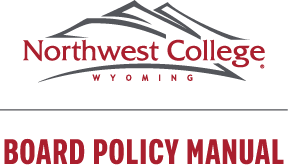To print please use PDF download.
I. Sabbatical Leave
Any full-time faculty member in the sixth year of service, or thereafter, at the College becomes eligible and may request a sabbatical leave. The College may grant sabbatical leaves with consideration for staffing and budget for projects that involve study, travel, or other educational pursuits that shall benefit the College, the faculty member’s division, and the individual faculty member.
Sabbatical leaves shall not exceed one calendar year. Leave and remuneration may be for
- one semester with full pay, or
- two semesters or one academic year with half pay.
The College grants sabbatical leaves with the understanding that the individual shall return to the College for at least one academic year upon the expiration of the leave.
Faculty members should submit applications for sabbatical leave to the Vice President for Academic Affairs as early as possible, but no later than December 1. Ordinarily, the College shall not consider an application after December 1. The application should be reasonably detailed, stating the scope, feasibility, and merit of the leave and the benefits to be derived from the sabbatical leave by the College, the division, and the faculty member. A letter from the Division Chair or Director of Nursing should support the request and should speak to the benefits of the sabbatical, plans to cover the faculty member’s duties during the sabbatical period, and an estimate of the cost of doing so. Faculty members awarded a sabbatical normally shall not be eligible for another sabbatical until the completion of six more years of service.
The Vice President for Academic Affairs in consultation with the Academic Advisory Council shall evaluate the applications and forward its recommendation to the President who shall make the final decision. Sabbatical leave request approvals are subject to available funding.
The faculty member, upon return from sabbatical, shall provide the Vice President for Academic Affairs, his or her Division Chair or the Director of Nursing, and the College President with a written evaluation of the sabbatical experience.
No more than 5% of the full-time faculty may be on sabbatical leave during any part of the academic year. The College considers sabbatical leaves as leaves with pay (see section IV.). Under ordinary circumstances, the College shall administer sabbaticals as “Individual Efforts” instead of “College-Assigned Efforts” (see policy 3450 "Copyright, Ownership, Publication Rights, Inventions, and Patents"). Exceptions are those instances where faculty members make significant use of College resources beyond salary and benefits. In these cases, the faculty member shall negotiate with the College to determine profit sharing before the sabbatical begins.
II. In-house Sabbatical
Occasionally, a faculty member may wish to request up to nine hours of release time, for a given semester, to work on a professional development or curriculum project. Interested faculty should discuss this option and the related course-staffing implications with the appropriate Division Chair. A request for an In-house Sabbatical is made to the Vice President for Academic Affairs using the Faculty In-house Sabbatical Request Form. Both the faculty member and the Division Chair also submit a letter providing a rationale for the request.
The required evaluative report shall be placed in the faculty member’s evaluative file.
III. Reassigned-time Project
A faculty member may engage in a reassigned-time project agreement. The faculty member, Division Chair, Director of Nursing or Vice President for Academic Affairs may initiate a reassigned-time project agreement to address specified institutional needs. Reasons for such an agreement may include developing mastery of new technologies, improving student recruitment efforts, developing or adapting curricular reforms, invigorating or updating one’s teaching, addressing perceived program problems, developing or expanding cooperative educational programs, or other curriculum-related projects.
The initiator shall provide a letter indicating the amount of reassigned time requested, the rationale for the request, the expected outcomes from the project and the availability of funding for the project if necessary. All three parties (faculty member, Division Chair or Director of Nursing, and Vice President for Academic Affairs) shall approve the agreement by signing the aforementioned letter in order for the project to be implemented.
Those who receive a reassigned-time project are expected to submit evaluative reports as required by the reassigned-time request form. The initiator, if other than the faculty member, shall also submit an evaluative report(s). Both reports are placed in the faculty member’s evaluative file.
IV. Leave With Pay
A leave of absence with pay is a leave from the College for a specified period of time. The President of the College may grant a leave of absence with pay for good cause. The period of leave with pay shall count toward length of service in the College, as pertaining to the following: promotion in rank, salary, retention, advancement to tenure status, and eligibility for sabbatical leave.
The College contributions to employee’s health, life, dental, and retirement benefits shall continue during the leave with pay at the same cost as if the employee had continued to work and the employee shall be responsible for payment of his/her portion.
- Leave Taken in Accordance with the Family and Medical Leave Act (see policy 5430 “Family and Medical Leave”).
The College's Family and Medical Leave policy (FMLP) complies with the Family and Medical Leave Act - 29 U.S. Code Chaper 28 - FAMILIY AND MEDICAL LEAVE. The Family and Medical Leave Act entitles eligible employees to take leave for 12 workweeks of leave in a 12-month period for:- a serious health condition that makes the employee unable to perform the essential functions of his or her job;
- to care for the employee’s spouse, child, or parent who has a serious health condition;
- the birth of a child and to care for the newborn child within one year of birth;
- the placement with the employee of a child for adoption or foster care and to care for the newly placed child within one year of placement;
- any qualifying exigency arising out of the fact that the employee’s spouse, son, daughter, or parent is a covered military member on “covered active duty;” or
- 26 workweeks of leave during a single 12-month qualifying period to care for a covered service member with a serious injury or illness if the eligible employee is the service members’ spouse, son, daughter, parent, or next of kin (military caregiver leave).
Spousal Combined Leave Limitations: Spouses employed by the same employer may be limited to a combined total of 12 workweeks of FML in a 12-month period if the leave is taken for:- The birth and care of a newborn child;
- The placement of a child for adoption or foster care;
- To care for a parent who has a serious health condition;
- Or a combination of the above.
For military caregiver leave, the spouses may be limited to a combined total of 26 workweeks of leave to care for a covered service member with a serious injury or illness.
For FMLP qualifying leave, the College has the following provisions which are specific to faculty:- For FMLP qualifying leave, as defined in the FMLP, faculty are eligible for paid leave for one full semester or 16 weeks – within the FMLP 12-month qualifying period, whichever leave amount is greater (only Fall and Spring terms count as full semester for the purposes of this policy). For FMLP qualifying military leave, twenty-six workweeks of leave may be granted, however only one full semester or 16 weeks within the FMLP 12-month qualifying period shall be paid.
- An extension of leave after FMLP may be granted in the extenuating circumstances. However, the extension can only be granted by the President in consultation with the Vice President for Academic Affairs, the appropriate Division Chair(s), and the Vice President for Administrative Services and Finance.
- If an extension of leave after FMLP results in a leave of absence of greater than 6 months without pay, it shall constitute a break in service for Faculty Early Retirement Incentive Program (FERIP) purposes and shall not count toward the accumulation of service for FERIP. (See policy 3530 "Policies and Procedures Relating to Severance/Termination" for Faculty Early Retirement Incentive Program (FERIP)).
- Sabbatical Leave (see section I.)
- Faculty Exchanges (see policy 3430 "Faculty Exchange")
V. Leave Without Pay
A leave of absence without pay for personal or developmental reasons is a leave from the College for a specified period of time. The President of the College may grant this type of leave. The College shall make payroll deductions for leaves of absence without pay at the rate of instructional duty days of annual salary for each day that the faculty member is absent. The College shall make every reasonable effort to minimize the impact of salary reduction during the period of the leave without pay. The period of the leave without pay shall not count towards length of service in the College, as pertaining to the following: promotion in rank, salary, retention, advancement to tenure status, and eligibility for sabbatical leave. A leave of absence without pay for greater than 6 months shall constitute a break in service for Faculty Early Retirement Incentive Plan (FERIP) purposes. It shall not count toward the accumulation of service for FERIP. (See policy 3530 "Policies and Procedures Relating to Severance/Termination" for Faculty Early Retirement Incentive Program (FERIP)).
The institution shall not pay the employee’s health, life and retirement benefits throughout the term of the leave of absence without pay, but the employee may continue the benefits by making payment directly to the State of Wyoming subject to rules and regulations adopted by the State of Wyoming relative to this privilege.
VI. Military Leave and Military Family Leave
See policies 5470 “Military Leave” and 5430 “Family and Medical Leave”

